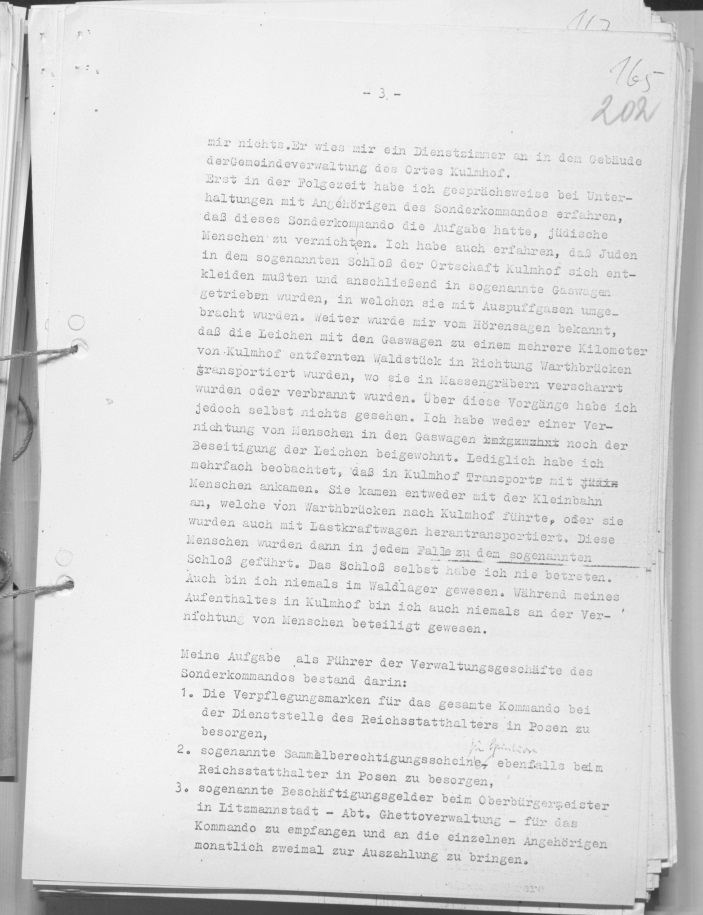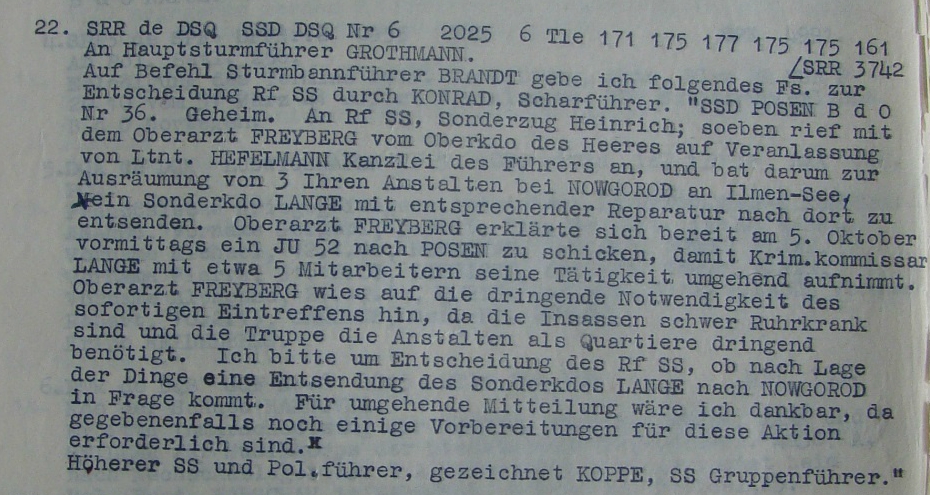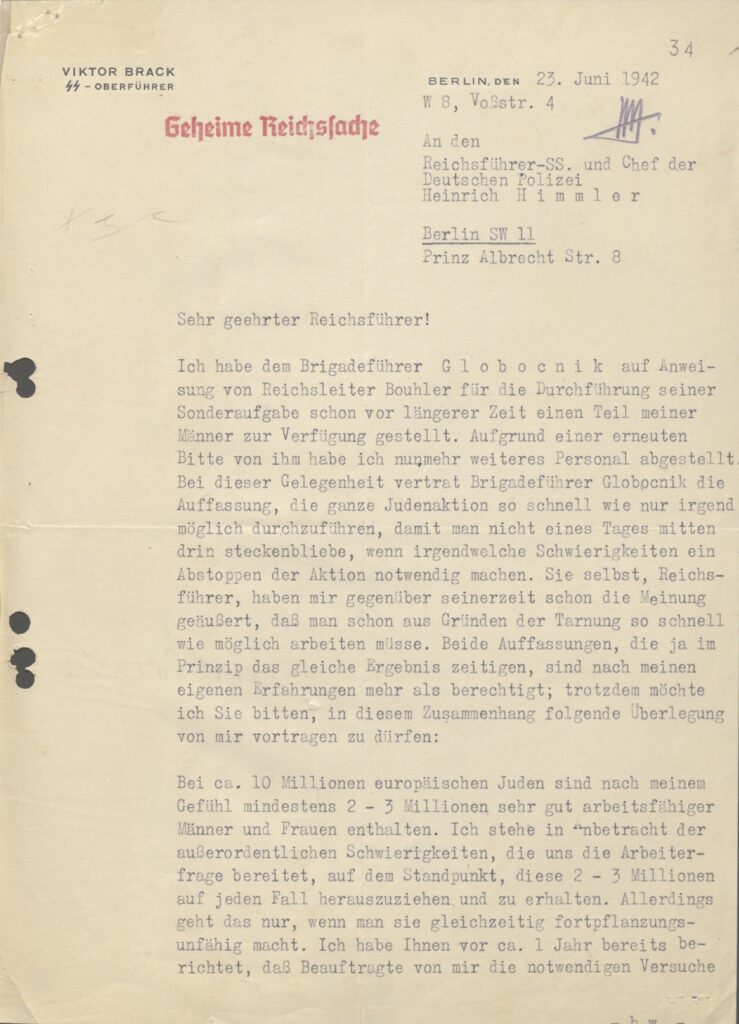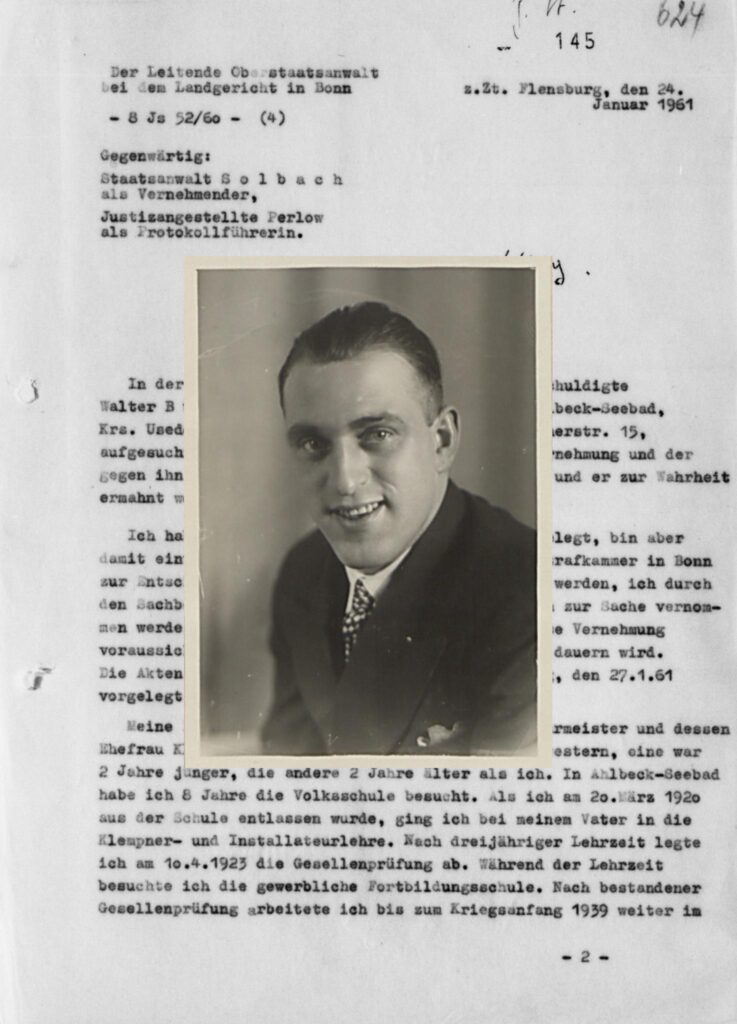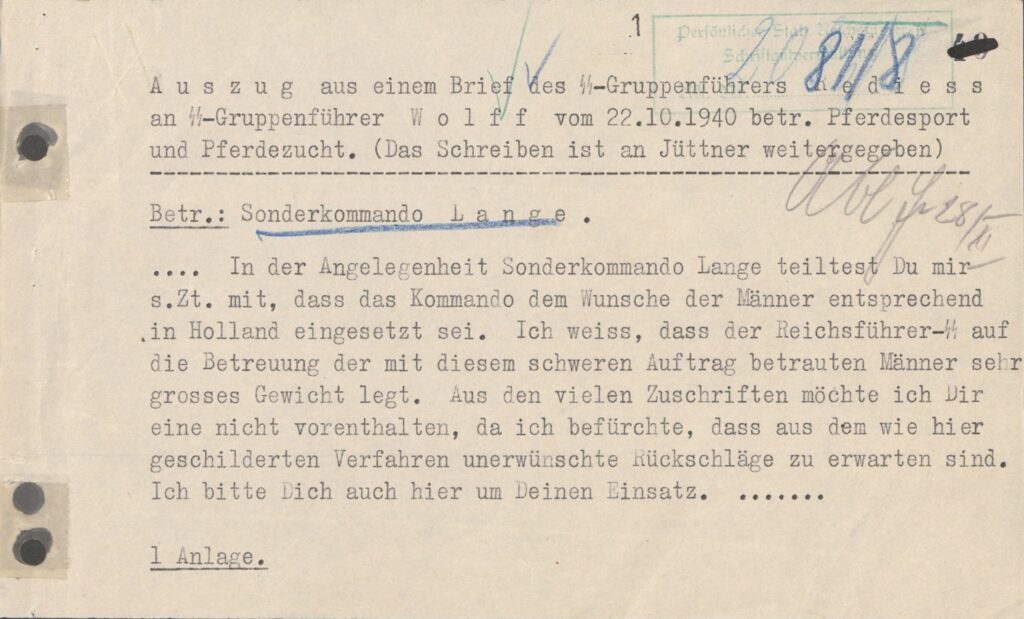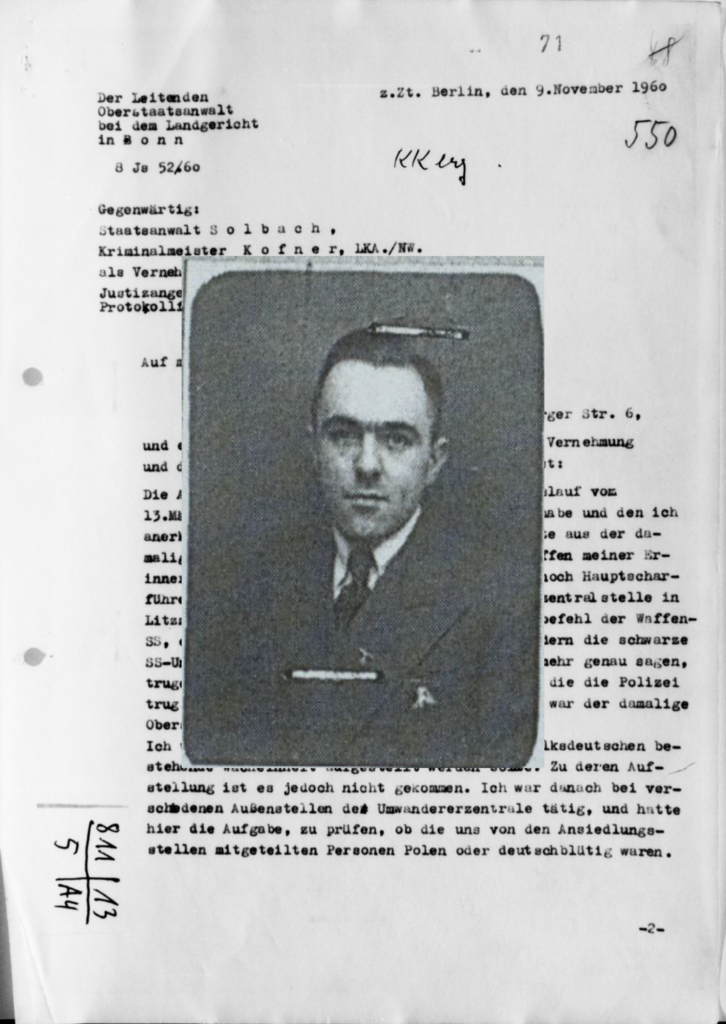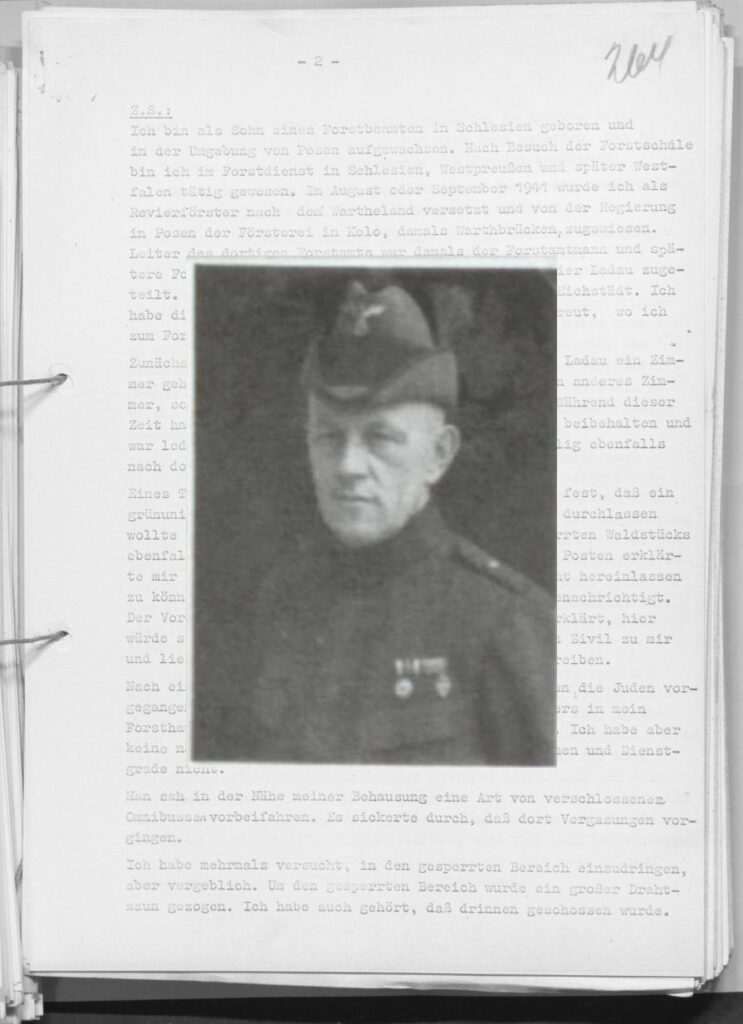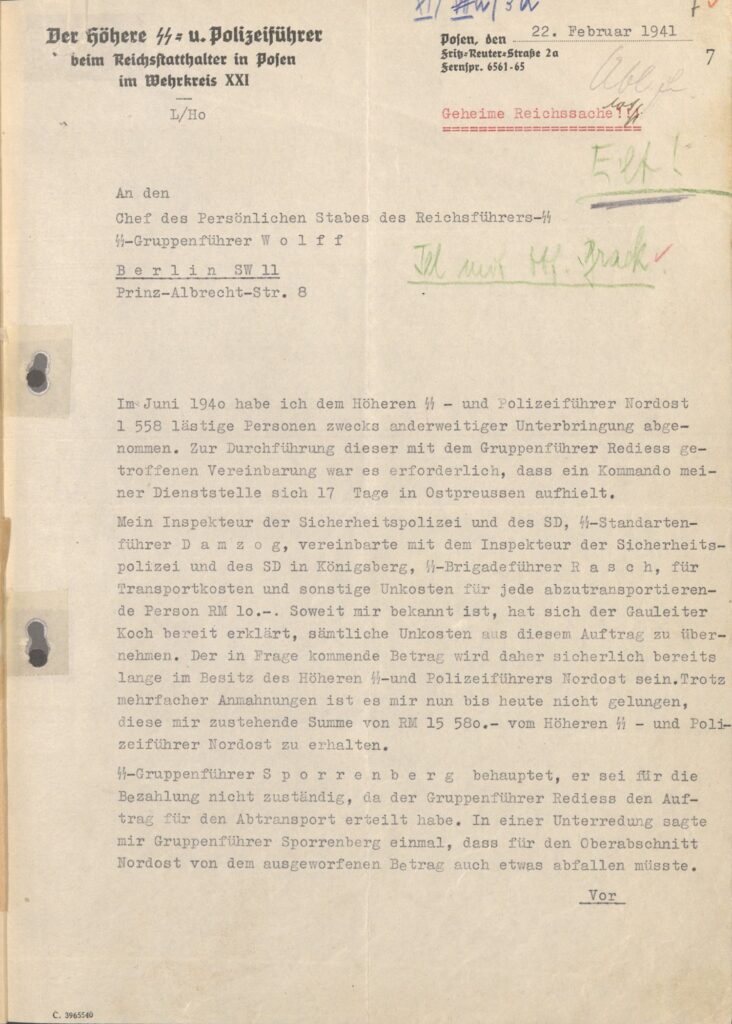On 16 August, 1941, the British intelligence intercepted a radio message from the Higher SS and Police Leader Center, Erich von dem Bach-Zelewski, to the Higher SS and Police Leader Posen, Wilhelm Koppe. In this communication, von dem Bach-Zelewski requested Koppe to “order the immediate deployment of Hauptsturmführer Lange, etc., to Baranowicze. On August 15, 1941, the day before, Himmler attended a demonstration shooting in Minsk and visited the Novinki asylum near Minsk. According to von dem Bach-Zelewski, Himmler ordered the facility to be cleared using a more humane method than shooting.
